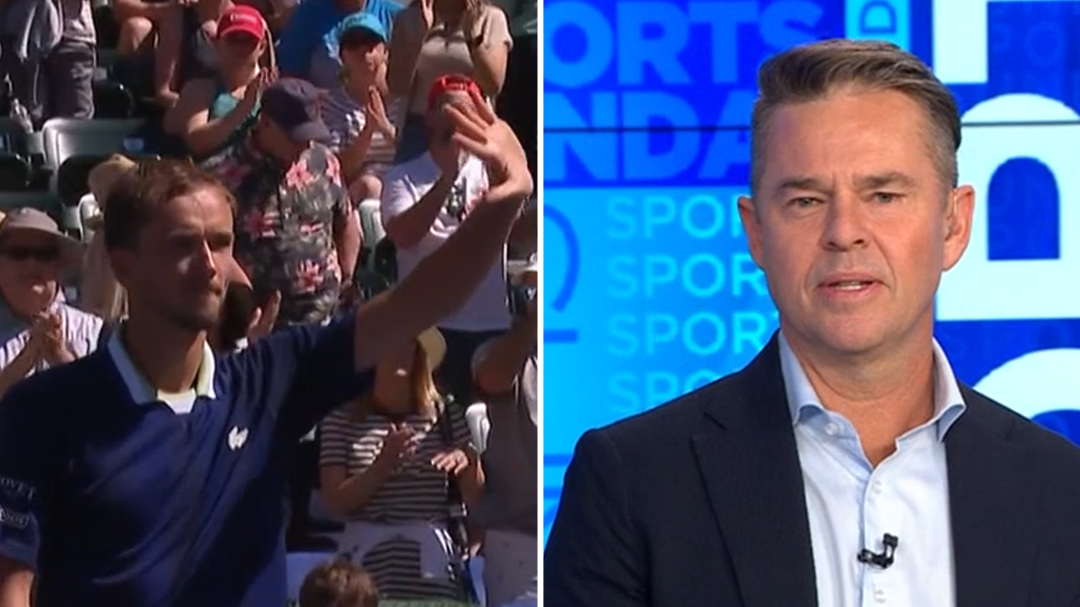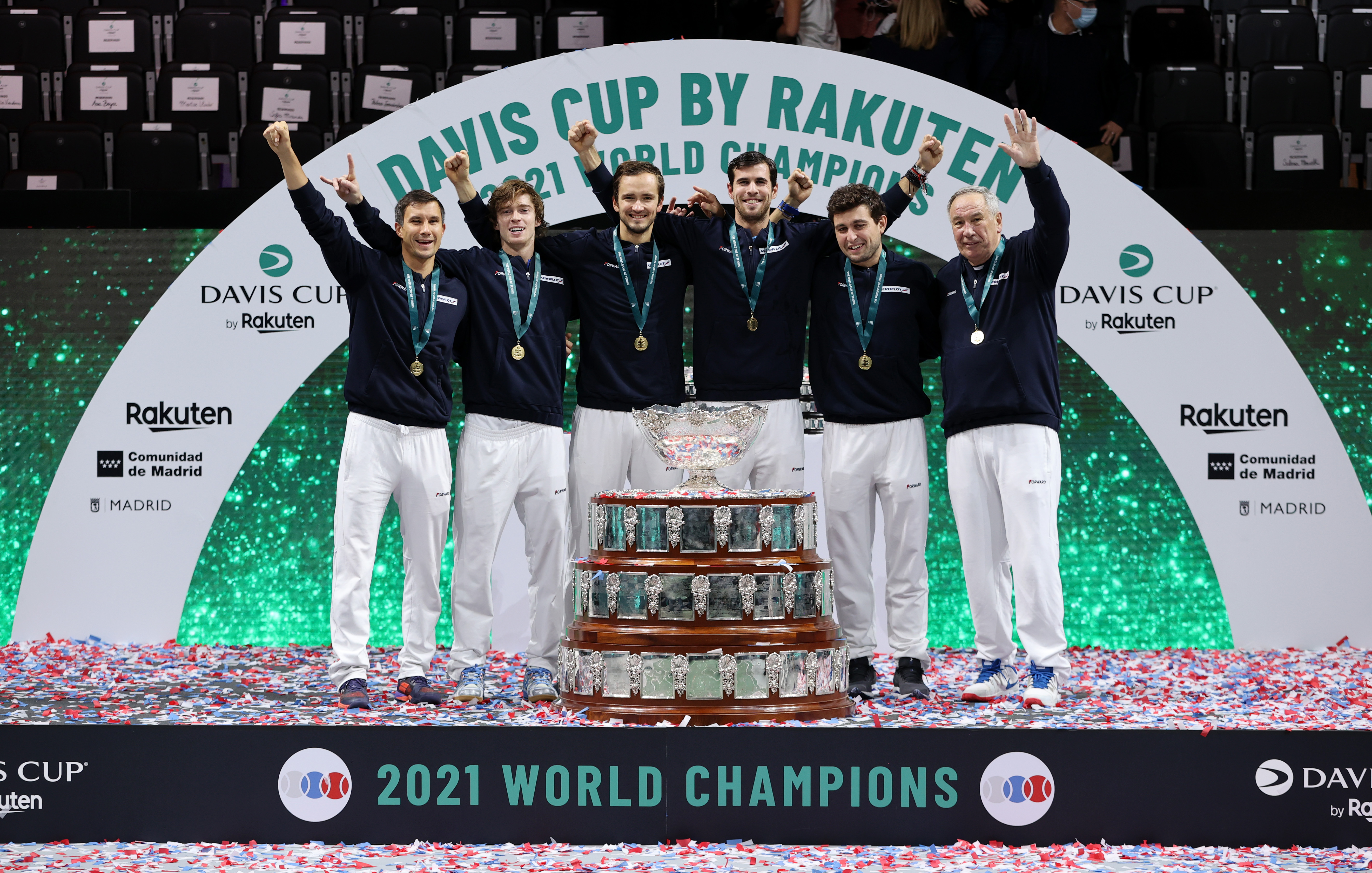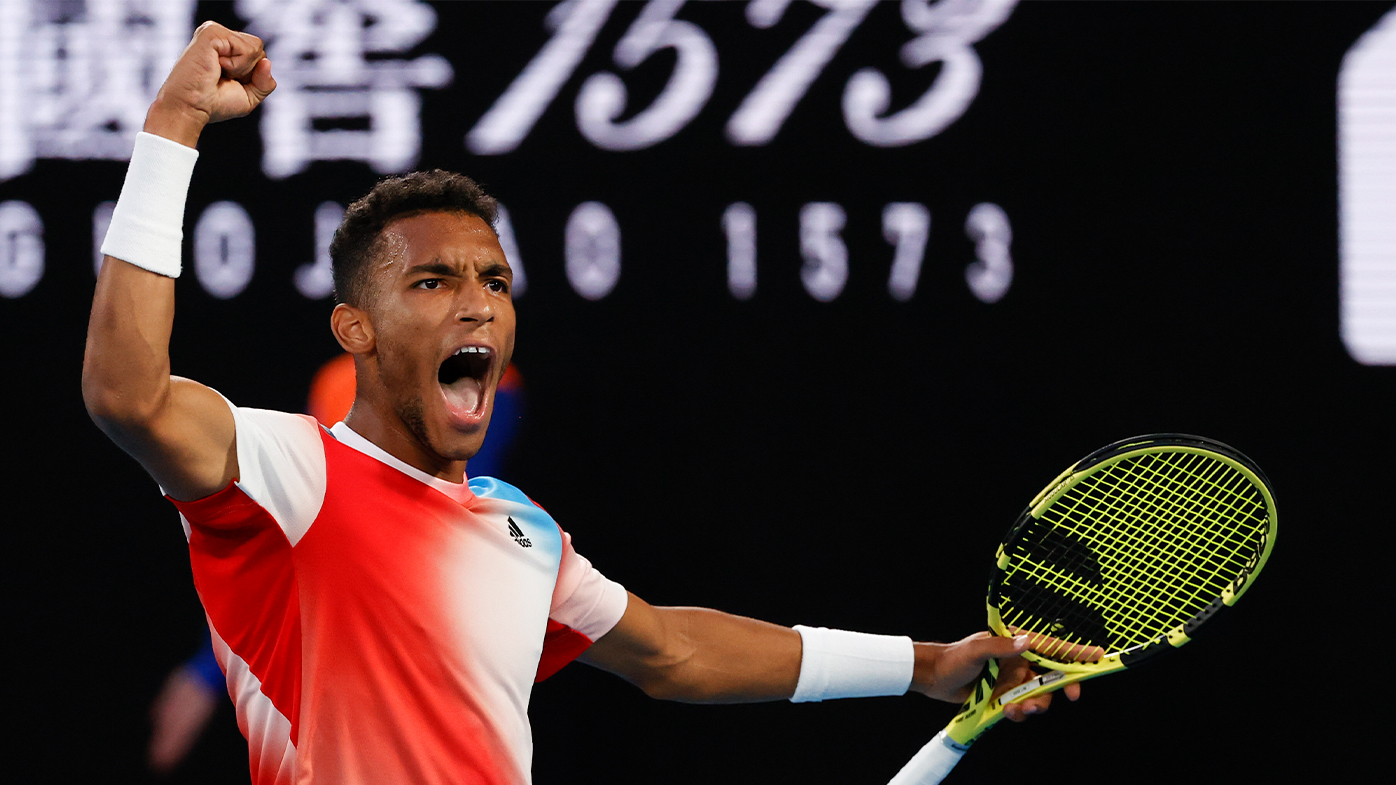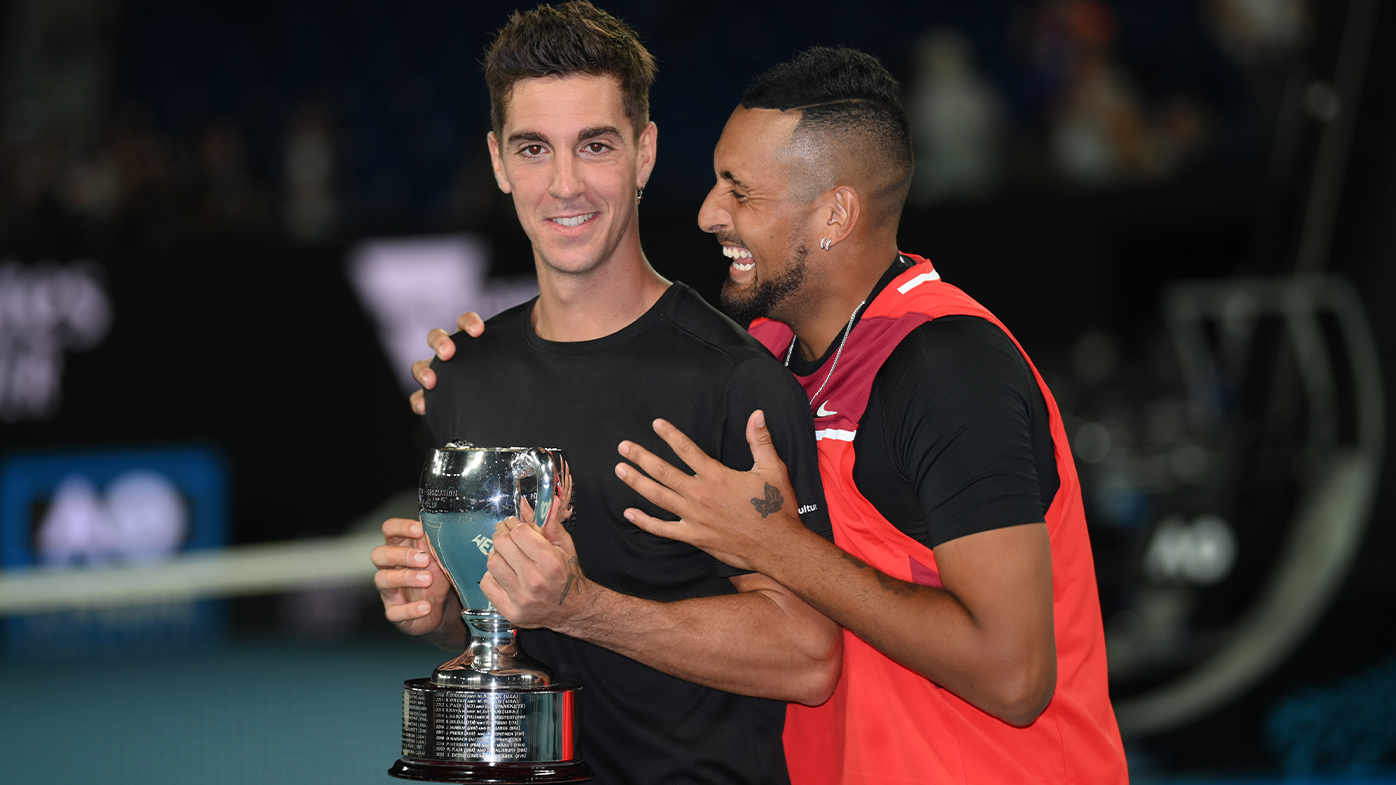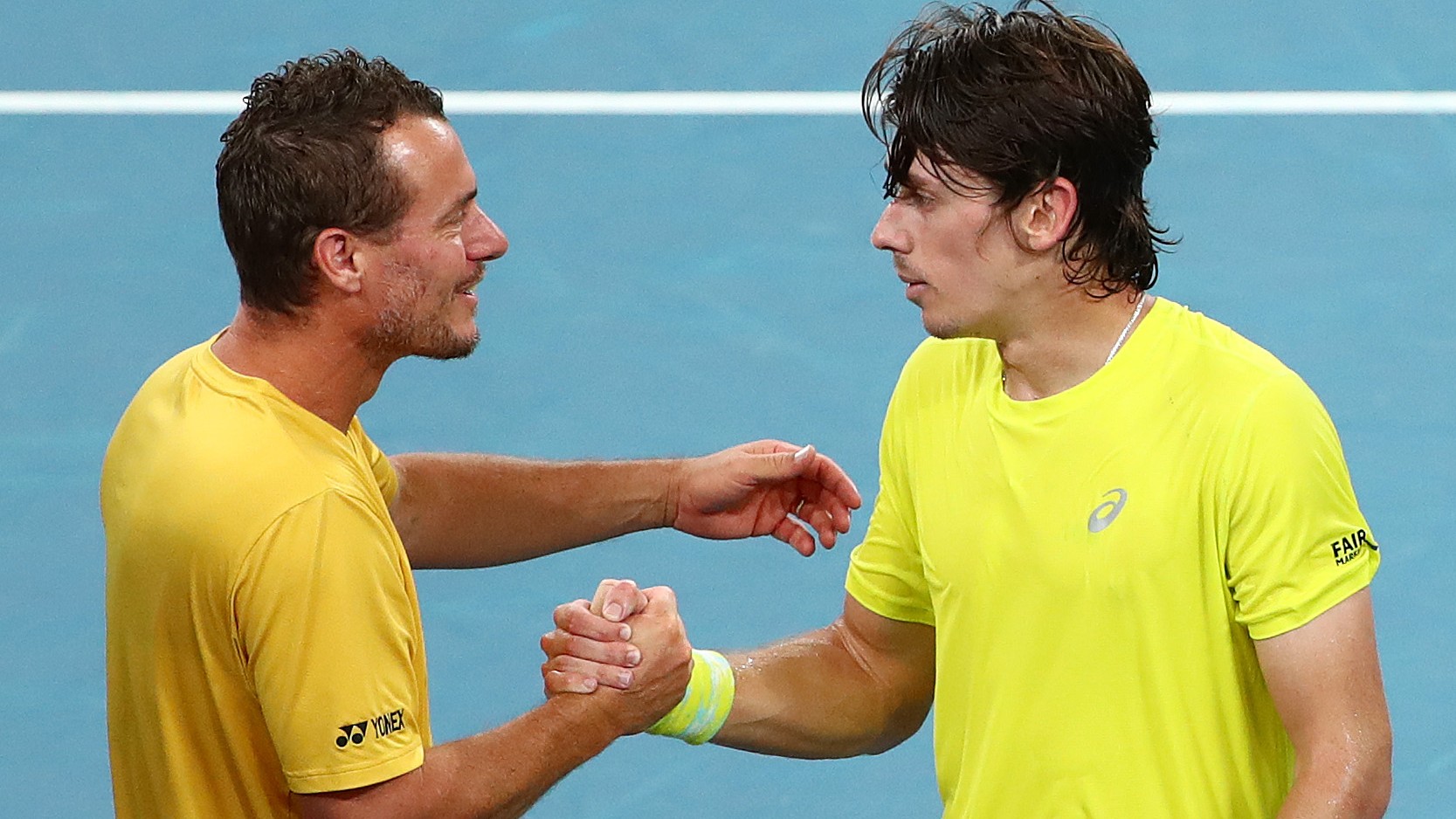Todd Woodbridge won 22 Grand Slam doubles titles, and represented Australia in 32 Davis Cup ties. He is an Olympic Gold Medallist, and a member of the International Tennis Hall of Fame.
The ITF’s decision to award a wildcard to Canada into the Davis Cup finals later this year is just the latest in a string of disgraceful decisions that have done nothing but harm a once-great tournament.
In brief, with defending champions Russia kicked out of the Davis Cup over the Ukraine invasion, a spot in the finals needed to be filled.
For reasons that could best be described as unfathomable, the organisers decided to give Canada a wildcard into the finals, despite the fact they were thrashed 4-0 by the Netherlands in the qualifying round earlier this month.
READ MORE: Rule changes not to blame for Manly’s poor start, says Hasler
READ MORE: Brumbies survive as controversy mars final play
READ MORE: Verstappen leaves Hamilton in his wake in Bahrain F1 practice
Instead of rewarding a country that actually had a win in their opening tie from World Group I, Canada are given a free ride into the finals.
It’s simply wrong and unfair.
Where’s the legitimacy of having a country that has already lost going through to the finals, ahead of Chile, who were the top-ranked winners in World Group I?
As has recently been reported, Britain will be one of the hosts of the round robin stages later this year, having signed a five year deal that’s dependent on Britain either qualifying, or receiving a wild card into the finals each year.
My question is – can you now buy your place into the world group playoffs? Is that how the competition works?
It would seem that the rules are written in such a way that if you’re wealthy enough, but fail to qualify through the quality of your play, you can just buy a spot in the finals.
This needs to be called out, because it’s nothing short of a joke.
I’m the current president of the Australian Davis Cup Tennis Foundation, which has around 1200 members. It exists to honour our rich Davis Cup history, help with travel to overseas ties for fans who want to support their country, and promote what was a great event.
It’s also opened my eyes to the fact that people who have for so many years been the lifeblood of Davis Cup are losing interest.
When that happens, you know the tournament has lost all relevance. Its credibility is shot.
The initial changes to the Davis Cup were put forward to guarantee more top players would be in attendance, but it was put forward in a way that they could play less to fit it into their schedule.
We’re now back playing as many, if not more weeks, than the previous format with the home-and-away ties.
Canada likely wouldn’t have found themselves in the situation where they required a wildcard if the world’s best players made themselves available for Davis Cup. That’s because both Felix Auger Aliassime and Denis Shapovalov were missing from the recent tie against the Netherlands. Both are ranked in the top 15 in the world and were also absent last December when Canada bombed out in the finals, having finished as runners-up in 2019.
What’s upsetting a lot of the players is if their country makes the top-eight stage, they’d rock up for one match, best of three sets, and if they lose it’s over in a couple of hours.
What top player in their right mind is going to commit to that at the end of a long season?
It’s just not possible to sell that to the leading players.
We just saw Nick Kyrgios and Thanasi Kokkinakis win an Australian Open doubles title. Do you really believe that at the end of the season they’re going to travel all the way to the finals in November, when they could find Australia is out of the tournament before they even step on court?
Assume for a moment, and I really hope it’s not true, Australia lost both singles matches in the quarter-finals. They’d be two-nil down, the tie would be over, and the Special Ks have flown halfway around the world for nothing.
It’s farcical.
I played 32 Davis Cup ties for Australia, and they were all special. The 1999 final in Paris stands out, where we won in front of a hugely partisan French crowd.
That’s what Davis Cup is all about, not playing in front of 200 disinterested spectators in a neutral venue somewhere.
The round robin stages this year will be in Bologna, Glasgow, Malaga and Hamburg. Glasgow might draw a crowd for the neutral matches, but the rest won’t. The Italians only turn up to watch Italy play, they couldn’t give a toss about Australia playing Kazakhstan.
Historically the Davis Cup has been a fantastic development tool to allow rising stars to represent their country, and those experiences only help them improve their individual games at Grand Slam level.
Who could ever forget the 1999 semi-final in Brisbane, when an 18-year-old Lleyton Hewitt demolished world No.3 Yevgeny Kafelnikov in straight sets at ANZ Stadium in Brisbane?
It’s an iconic Australian sporting moment. Had it been played in front of family and friends only in a neutral country it wouldn’t be half as well remembered as it is.
Davis Cup is also a vehicle that grows the games in the domestic market. Australia has hosted Davis Cup ties in Cairns, Darwin and Mildura, it gives exposure to fans in parts of the country that don’t normally get to see top class tennis.
Given the loss of interest, that’s not feasible going forward.
The leadership of the Davis Cup committee needs a serious overhaul. It needs people who the players respect and relate to, and people who put the good of the competition ahead of all else.
I can only hope that that overhaul can be done before it’s too late.
For a daily dose of the best of the breaking news and exclusive content from Wide World of Sports, subscribe to our newsletter by clicking here!
